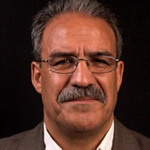Turkey to fill Iran Power Vacuum in the Region

IRD: Does the repeated confiscation of Iranian planes in Turkey’s air space carry a particular message for Iran?
BAA: The message is that considering Turkey’s important role in the region, it has announced that in its foreign policy it will also abide by international institutions, meaning the United Nations. As you know, it has clearly pointed this out, but it has also announced that regarding US unilateral sanctions against Iran, it will only abide by sanctions imposed by the UN- even though it is a US ally and a member of the NATO.
About the tracking of Iranian airplanes, we have to realize that every country has the right to be suspicious of airplanes crossing its air space and to stop and investigate the plane as well. In previous inspections, they found no suspicious items but in the recent one there were some questionable items inside the airplane. Therefore, we cannot blame Turkey for its conduct; there might have been some lack of coordination among governmental organizations in sending the cargo. In a sensitive situation like this, these events will not benefit Iran at all. As you know, Turkey has reported this incident to the UN Security Council as well. Then again, in another similar situation in Nigeria, a lack of coordination among governmental organizations were witnessed, which will surely have negative consequences for Iran.
I have to add that we cannot blame Turkey over this issue, especially when it has found questionable items in the cargo. From another perspective, it seems that intelligence services are spying in cases like this.
IRD: In addition to confiscating the Iranian cargo, we saw that in the Bahraini uprising, Turkey asked Iran to stay away from the internal affairs of this country. Does it seem like a new chapter has begun in the Iran-Turkey relations?
BAA: Turkey wants to have an influential and effective role in the Middle East, and after Mr. Davoudoghlou announced his new foreign policies, it seems that Turkey wants to play a role in the whole Middle East. On the Lebanese issue and the Hariri tribunal, they held a summit in Qatar. Actually, Turkey is trying to fill in the vacuum left by Iran in the region. On Bahrain, we have to refer to Iran’s double standards in the recent developments in the region in supporting popular uprisings in some countries and taking a different position in others. Obviously, Iran’s double standards will not benefit it, either. To sum up, these events have elevated Turkey’s position in the region and this country is using the situation for its own good.
IRD: So can we say that Iran and Turkey are competing against each other in the region?
BAA: All countries and governments are involved in an international competition. We could label it the desire to gain a better position, not competition. In other words, this competition does not necessarily omit any side; rather, any country that tries harder and comes up with a more active foreign policy will gain a better position in the region. A country with a negative and unsuccessful foreign policy will gradually lose its position. The role played by the parties must also be taken into consideration; in other words, parties that were powerful in their own country and in internal affairs will prosper in their foreign policy as well. Mr. Erdogan’s domestic and foreign policy have both been successful.
I believe that if the foreign policy of a country is devised by organizations like the parliament, the government, the Security Council, and even think tanks, it will be much more successful.
IRD: Therefore, Turkey has been more successful in its foreign policy in the region compared to Iran?
BAA: Yes: considering its structure and the fact that it sits beside the EU and cooperates with regional institutions in the Mediterranean sea, the Black Sea and even Central Asia; it has been more successful. As you know Turkey’s GDP, without any oil, is higher than Iran’s. Also, it annually receives 30 million tourists, and the result of these superior figures is a better position for Turkey in the region. Turkey has also used these issues to further succeed in its foreign policy.

